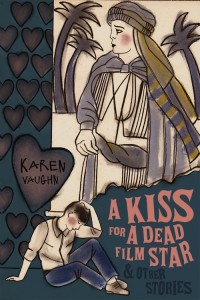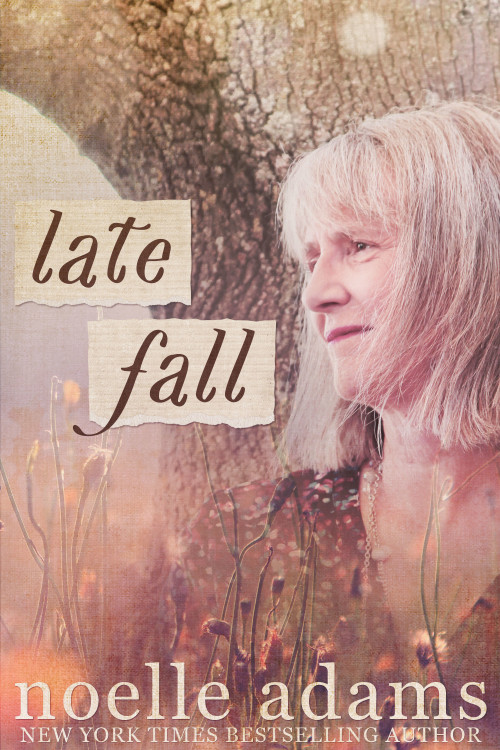
Late Fall
Noelle Adams
Release Date: March 7, 2016
Print ISBN: 978-1-942083-26-9 • EPUB ISBN: 978-1-942083-27-6
Brain Mill Press offers Late Fall for direct sale in ebook and in a limited fine first edition printing of signed, numbered paperbacks. Ebook buyers receive access to MOBI (Kindle), EPUB, and PDF files, offered without DRM restrictions. Print book buyers receive a physical copy of the book, a stationery art gift, and access to the ebook files in all formats.
Late Fall was so lovely. So tender and strong. I loved it. Beautiful book!
—Molly O'Keefe, RITA Award-winning author of Everything I Left Unsaid
It may be just as easy to fall in love in your seventies as it is in your teen years ... as the blossoming of Ellie and Dave's relationship shows in realistic, bitter, and, yes, romantic detail.
—Romance Novels for Feminists
Lovely. Poignant and thoughtful and very moving and sweet.
—Laura Florand, author of The Chocolate Thief
There is something so poignant about the blossoming of love in a setting marked by a loss and dependence. Love, and even friendship, in those circumstances is a defiant act of hope.
—Heroes and Heartbreakers
A really lovely tale, unlike any other story I’ve read but one that will stay with me for its poignant yet sweet romance, complete with a happy ending. 5 stars.
—Straight Shootin Book Reviews
This is life. After summer, the green leaves always change colors and fall off the trees. Dogs die, no matter how much you love them. Land is sold, even if you used to tell yourself you were going to die on the property. And people get old.
Even me.
Ellie Davenport has watched the same valley change with the seasons since she was a child. A sharp and intelligent woman, she’s enjoyed a stellar professional career, a full love life featuring interesting men, and a small but loving circle of family and friends.
Now she’s on the other side of the valley, retired, alone, and the view is much different. She wants to believe that it’s just as beautiful from this side, looking back at her life, but the self-sufficient resiliency she’s always depended on to keep her path straight and people at arm’s length isn’t as reliable in the crowded and socially uncomfortable microcosm of assisted living.
The discovery that her old work rival, Dave Andrews, is just down the hall, just as annoyingly handsome, and keeps showing up on her daily hike is most definitely a disaster and not at all interesting.
I would have thought that, living as long as he has, some of that arrogance would have been burned off through the fires of life, but evidently it hasn’t been. He’s still the same jackass who showed up in my office one day and told me my budget for periodicals would be cut in half starting immediately.
Dave isn’t just the same as he always was. Loss has a way of moving into the the heart and changing people. Except — sometimes a long walk with a smart woman can show you just how much room you still have left for love.
I don’t know if you’ve ever tried it, but telling yourself there’s nothing to hope for doesn’t ever work.
We’re human beings, after all. Hope is what we do.
ABOUT THE AUTHOR
Noelle Adams handwrote her first romance novel in a spiral-bound notebook when she was twelve, and she hasn’t stopped writing since. She has lived in eight different states and currently resides in Virginia, where she reads any book she can get her hands on and offers tribute to a very spoiled cocker spaniel.
She loves travel, art, history, and ice cream. After spending far too many years of her life in graduate school, she has decided to reorient her priorities and focus on writing contemporary romances.
AN EXCERPT from Late Fall by Noelle Adams
© Noelle Adams, 2016
Chapter 1
Almost every morning for the last twenty-five years, I’ve walked a dirt path that leads from my backyard to a little graveyard in the woods.
On this, my last morning, I do it one more time.
It’s not as easy as it sounds, although the walk is less than half a mile. I have to take my walker, which I hate even the sight of, and I have to rest several times along the way.
My hip surgery was just a few weeks ago, and walking still isn’t easy. My doctor says it may never be easy again, but that’s a depressing thought I refuse to believe.
Everyone tells me that positive thinking is particularly important at my stage of life. This is a ridiculous claim, as anyone knows who has ever tried to use positive thinking as a tool. The world doesn’t change because you want it to. Your body doesn’t feel better because you talk yourself into believing it. We tell ourselves these lies because we want to feel as though we have some sort of control over what happens to us—even those things that are completely out of our hands. So we pretend our conscious thoughts are more powerful than anything else because we want so much for them to be so.
I know better. Positive thinking isn’t the miracle cure that we want it to be. My sister continued thinking the best on each of the 461 days she fought against cancer.
The cancer took her anyway.
But I still hope every evening that I’ll walk a little easier the following day. I keep hoping because I’m a human being, and that’s what we do. We hope, whether or not reality can ever answer those hopes.
This morning, the pain in my hip, my back, even my legs is a little worse than it was yesterday—I assume because I’m trying to decrease my pain medication so I don’t fall asleep every time I sit down.
I have to make the walk to the graveyard today, though. It’s my last morning. It’s my last chance to say good-bye.
It’s the end of August, one of those last hot, humid days that summer throws at us in defiance, even as it’s on its way out. Not even seven in the morning yet, and I still feel a trickle of sweat run down my breastbone as I lift my walker over a tree root.
I pause for a minute to catch my breath and consider sitting down in the little seat on my walker to rest my legs. But I’m afraid if I sit down it will be too hard to get up, so instead I push on.
I used to hike nearly every weekend. When I was forty, Jeff and I hiked the Appalachian Trail over the summer, starting in our county in southwest Virginia and making it all the way up to New York.
We always talked about doing the entire trail, but we couldn’t get that much time off from work, and we split up a few years later anyway.
I ache to be forty again, with strong legs and hiking boots and hair that hung all the way down my back, stepping out onto an outcropping where I could see miles of summer slopes and valleys, believing that at my side was the man with whom I’d spend the rest of my life.
I was with Jeff for eight years, longer than I was with anyone else. But he’d always wanted kids, and at forty-two, it was now-or-never-time for me, and I just didn’t want that life.
He found a pretty woman in her thirties to marry, and they have three boys and eight grandkids now.
It’s a different life than the one I’ve led—one of those movie reels of could-have-been that run through my head from time to time. The colors are vivid and the soundtrack is happy, but the woman playing that domestic part just isn’t me.
So I’ll be seventy-two years old next March, and I’m alone. Never been married. Never had a child. My one sister and my parents are long dead.
I’ve never really been lonely, though. I’ve never quite understood what loneliness is. After all, I always had my friends and my books and the company of my own thoughts. And, until two months ago, I always had a dog.
That last thought is not one I should let myself dwell on—not when I still have to make it up the last little hill as the path curves upward to the graveyard.
I clear my mind and ignore the pain because it’s so important that I make it all the way this morning. When the curve around the slight slope evens out, I can see the sunny clearing broken by eight stone markers, one for each grave.
People trace their lives in different ways. Many do it by stages of their family—engaged, newlywed, one child, two children, empty nest, grandchildren. Others do it by places they’ve lived or the various positions they’ve held during their careers.
I’ve always traced the lines of my life by my dogs.
As I finally reach the small graveyard, it’s as though I can see the years of my life spread out before me in the eight stones—just big rocks I found on the property—that identify where I buried each of my dogs.
The first was Austen, the sweet springer spaniel I adopted when I got my first job after graduating college. Austen was exuberant until the day she died, giving my twenties a happiness they might not otherwise have possessed. I hated the secretarial job I had then, I was always struggling with money because I didn’t want to rely on my parents, and I was endlessly frustrated romantically, since the men I was interested in never gave me a second glance.
After Austen died, I made the decision to go to graduate school in library science, and I had two dogs in my thirties as I was finally diving into a career I loved as a college librarian. Both dogs were springer spaniels like Austen. Brontë died too early from liver failure, and O’Connor, who was never without her tennis ball, hadn’t been strong enough to hike the Appalachian Trail with Jeff and me.
O’Connor died shortly before I broke up with Jeff and was replaced by Shelley, a black cocker spaniel. Shelley was quiet and loved to cuddle up with me as I read, and I’d needed that in my midforties. Her soft, warm body was a comfort, always waiting for me with a wagging tail when I came home from work. I continued to move up in position at the library, until Shelley died about the time I became the director of the library for the same private liberal arts college I’d attended as an undergraduate.
I got another cocker spaniel after Shelley. Rossetti was plagued with health problems, but she had the sweetest, most patient spirit. I spent a lot of time and money taking care of her. It made me worried about getting another cocker spaniel, since the breed is prone to such problems. I had to have a knee replaced in my midfifties, and I decided to change to a smaller dog. Eliot and Browning were both King Charles spaniels. They were sisters and I couldn’t decide between them or split them up, so I ended up with both. They were small and social and adorable with their smashed-in noses and bright eyes. They saw me through the end of my career.
There was only one dog after that.
I adopted Alcott from a shelter. She was a brown cocker spaniel who came to me with only one eye. She was my companion in retirement, until she died of cancer two months ago.
I was going to get a new dog last month, but then I fell and had to have surgery.
So there was no dog after Alcott. I’m not even sure I want one. Losing them gets harder and harder.
But I’ve always understood myself as a woman with a dog. It’s been part of my identity for as long as I can remember.
I’m not sure who I am now that Alcott is dead. She was my last dog. She’ll have to be. Today is my last day, and I can’t have a dog anymore.
I stare down at the large, lopsided rock my nephew helped me drag over after we buried Alcott, and I miss her so much I feel the pain surging up through my chest, my throat, my eyes.
I’ve never been one to cry in public, but I used to cry on my own, when no one else could see. After menopause, however, I’ve cried less and less, like my tears have simply dried up.
I cry now, though, thinking of Alcott’s eyes as the veterinarian put her to sleep not so many weeks ago, the little tail that wagged weakly even at the end.
And then I’m crying for all of them—all eight stones, the eight dogs who have marked the years of my life.
Or maybe I’m just crying for myself, because I have to say good-bye today.
I lived on these two acres in the mountains of southwest Virginia during my childhood and then again for the last twenty-five years. My mother was born here. She inherited it from her parents, and she passed it on to me when she died. She never explained why she willed the property to me and not my sister, but I always assumed it was because my sister had a child.
My mother loved me and was proud of me all her life, but she always believed there was a hole in my life because I didn’t have a husband or family of my own.
My mother died around the time I broke up with Jeff, so I moved out here then and commuted the thirty minutes into town for my job. The house is more than a hundred years old—just a two-bedroom farmhouse in constant need of work and repair. I’ve loved it, though. The living room window looks into Valentine Valley, and the view has been another of my constant companions.
I can’t begin to calculate the amount of money I’ve poured into this house and land since I’ve owned them, and I’ve finally had to acknowledge that I simply can’t keep them up. I have a decent retirement income, but I have no idea how long I’ll live, so I can’t dump it all into renovating this house.
Plus, I no longer have the energy to do the daily upkeep. I can usually take care of myself fine, but the household chores that should be simple are taking nearly all of my daytime hours, since I have to do them so slowly now.
It’s not like I’m in particularly bad shape. I have some arthritis, and I have digestive problems when I eat onions, berries, nuts, or red meat. I pee a little in my pants whenever I sneeze or laugh, but there has been nothing truly debilitating about my health until recently.
My nephew, Roger, was particularly concerned after I fell in the bathroom last month and broke my hip. I couldn’t reach the phone, and it was an hour before my neighbor dropped by for a chat and a cup of tea. Roger said he didn’t think I should live alone anymore, and I can’t even say he was wrong.
So the house and land are going to him—he’s paid a fair market price for it, and there’s no worry of his taking advantage—and I’m going to an assisted-living home.
I thought I was resigned to this reality. I no longer have the energy for angst the way I did when I was younger. Raving against what feels like injustice doesn’t accomplish anything except using up our emotional resources, so I don’t do it anymore.
This is life. After summer, the green leaves always change colors and fall off the trees. Dogs die, no matter how much you love them. Land is sold, even if you used to tell yourself you were going to die on the property. And people get old.
Even me.
So this morning I have to say a final good-bye to my dogs and become an old woman who doesn’t have one. I have to leave these acres with their lush green lawns and thick woods that slope halfway up the mountain. I have to become someone living in a retirement home with a lot of old people I don’t know.
I’m tired anyway. I can do the clichéd thing and tell myself I’ve had a good life. I don’t need to hope for anything anymore, and maybe there’s a kind of respite in that.
Maybe.
I don’t know if you’ve ever tried it, but telling yourself there’s nothing to hope for doesn’t ever work.
We’re human beings, after all, and hope is what we do.
EXTRAS
- Romance Novels for Feminists reviews Late Fall
- “Old Is New Again: Finding Love in Late Fall” (Heroes & Heartbreakers)
- Review of Late Fall at Straight Shootin’ Book Reviews

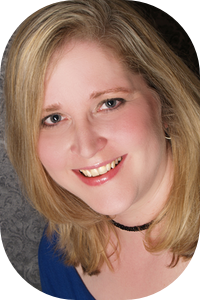
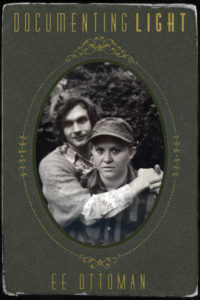
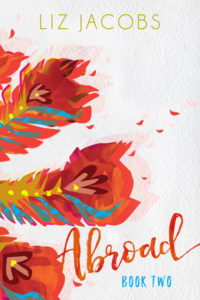
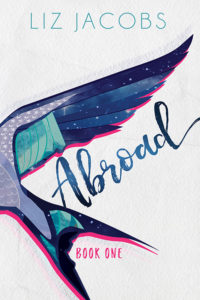
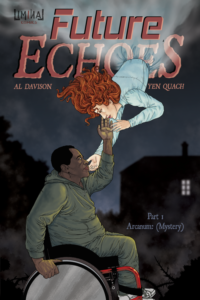
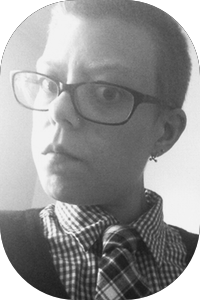 EE Ottoman grew up surrounded by the farmlands and forests of Upstate New York. They started writing as soon as they learned how and have yet to stop. Ottoman attended Earlham College and graduated with a degree in history before going on to receive a graduate degree in history as well. These days they divide their time between history, writing, and book preservation.
EE Ottoman grew up surrounded by the farmlands and forests of Upstate New York. They started writing as soon as they learned how and have yet to stop. Ottoman attended Earlham College and graduated with a degree in history before going on to receive a graduate degree in history as well. These days they divide their time between history, writing, and book preservation.